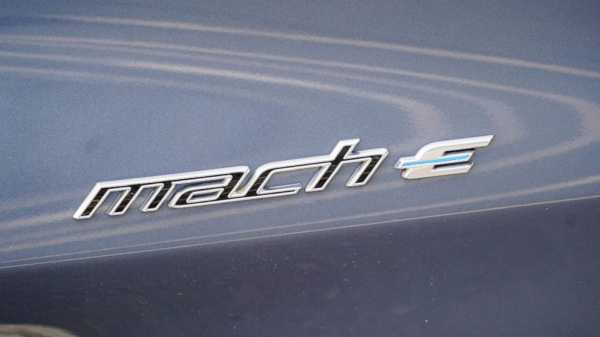
DETROIT — Ford is cutting prices on its Mustang Mach-E electric SUV by as much as $6,000 just weeks after market leader Tesla took similar steps.
The Detroit automaker is increasing production of the Mach-E this year and said it is taking advantage of streamlined costs to reduce prices across the board, it said Monday.
The cut comes just over two weeks after Tesla Inc. dropped prices 6% to nearly 20% in the United States on most of its models in an effort to bolster demand and raise market share.
Ford's maneuver will almost certainly force other automakers to trim prices as well, touching off a bit of a price war for electric vehicles, said Jeff Schuster, president of global forecasting for LMC Automotive, a Detroit-area consulting firm.
“To remain price competitive to consumers, it's going to require a response from anyone who wants to play in this area,” he said.
However, Schuster says he doesn't see an all-out price war that brings prices down even more. Automakers will try to protect profit margins on EVs as their share of the U.S. market keeps growing, he said.
Although Ford didn't mention Tesla in its statement, the Dearborn, Michigan, company said the price cuts are part of Ford's plan to keep the SUV competitive in a fast-changing market.
“We are not going to cede ground to anyone,” said Marin Gjaja, Chief Customer Officer of Ford Model e, the company's electric vehicle unit.
The price of a base rear-wheel-drive standard range Mach-E will drop $900, from $46,895 to $45,995. The top-end GT extended range will fall $5,900, from $69,895 to $63,995. The prices don't include shipping, government fees or taxes.
On Jan. 13, Tesla Inc. slashed prices dramatically on several versions of its electric vehicles, making some of its models eligible for a new federal tax credit that could help spur buyer interest.
The company dropped prices nearly 20% in the United States on some versions of the Model Y SUV, its top seller. That cut will make more versions of the Model Y eligible for a $7,500 electric-vehicle tax credit, which will be available through March. Tesla also reduced the base price of the Model 3, its least expensive model, by about 6%.
The cuts were in response to slowing demand and Tesla’s sagging stock price. But CEO Elon Musk predicted they would yield stronger sales, with the company delivering 1.8 million vehicles this year, up 40% from 2022.
Ford said its price cuts are designed to make the Mach-E a more compelling option for EV customers, and to grow the company's EV market share.
Nissan, which has two EVs competing in the mainstream U.S. market, the Ariya and Leaf, said it has no plans to change prices, at least not now. “Of course we're watching what's going on,” said Brian Brockman, vice president of communications.
General Motors' Chevrolet brand, which will have four EV model lines on sale by the end of this year, said it had no pricing announcements coming.
Messages were left Monday seeking comment from Hyundai and Kia, two other large competitors in the mainstream EV market.
The auto industry is seeing the cost of many raw materials decline, and that will help companies to trim prices, Schuster said. Shipping costs for parts also have dropped, he said.
The price cuts touched off by Tesla are different from the way the auto industry used to try to stimulate sales — keeping the price the same but offering discounts, Schuster said. The cuts, he said, are generating headlines and will get customers in the door to look.
They also are likely to last longer than spot discounts, he said. “You're not likely to see the price increase in a month, or two months, or six months, at least before the next model year” in late summer, Schuster said.
Ford said customers who ordered Mach Es and are awaiting delivery will automatically get the lower prices. The company will reach out directly to those who already have their vehicles with a sale date after Jan. 1.
Sourse: abcnews.go.com






